#ecology and conservation
Explore tagged Tumblr posts
Text
I attended my first in-person conference on Tuesday, the British Ecological Society Aquatic Group annual meeting at Lancaster University! It was quite a small conference, but really enjoyable! So many incredibly interesting talks, ranging from global warming and ocean acidification to using meeting sponges to assess community diversity through eDNA!
Despite the grey, drizzly weather, it was a great experience, and I definitely have a few more papers to read and connections to make!
Lancaster uni also had a lovely campus with pretty architecture and lots of little green spaces! There was a gorgeous coffee shop on campus (who do amazing vegan hot chocolate!) called Coastal and co. If you're ever on campus, I highly recommend them! :)
Please enjoy this little photo I took outside of where the conference was! You can just about see the coffee shop I mentioned in the back!
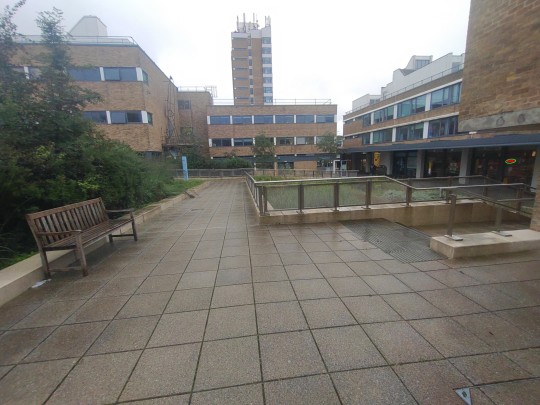
#phd life#marine ecology#ecological modelling#marine biology#ecology and conservation#marine ecosystems#phd research#phdblr#phd#academic conferences#British Ecological Society#aquatic ecology#aquaculture#university journey#uk universities#lancaster#Lancaster University#building confidence#working with social anxiety
6 notes
·
View notes
Text
Most sharks are just big ocean puppies! I've always thought it was a little unfair how other apex predators like lions, wolves, and eagles are viewed as noble, powerful, beautiful, and majestic. But sharks are still far too often considered thoughtless killers (dead shark eyes), targeted man eaters (jaws did a lot for this continued misconception), and just largely scary.
Realistically sharks are just filling in the same ecological niche as those apex predators, except they're in the ocean. They're really no more dangerous than those other idolised predators, and they deserve the same grave and wonderment.
Just as we've seen people treat wolves, lions, ect with love and care in sanctuaries, there are people who lead dives to interact with friendly, habituated sharks. They've really been helping too de-villainise sharks, but it would be great to see more softness for them in the media.

#to be honest I'm just really passionate about non-charismatic species awareness and conservation#a lot of animals that people don't like (snakes bugs ect) are often still of the most important keystone species and they deserve some love#marine ecology#marine biology#ecology and conservation#marine ecosystems#marine conservation#shark conservation#shark awareness#sharks are cute#sharks are friends#keystone species#apex predators
43K notes
·
View notes
Text
When I was in vet school I went to this one lecture that I will never forget. Various clubs would have different guest lecturers come in to talk about relevant topics and since I was in the Wildlife Disease Association club I naturally attended all the wildlife and conservation discussions. Well on this particular occasion, the speakers started off telling us they had been working on a project involving the conservation of lemurs in Madagascar. Lemurs exist only in Madagascar, and they are in real trouble; they’re considered the most endangered group of mammals on Earth. This team of veterinarians was initially assembled to address threats to lemur health and work on conservation solutions to try and save as many lemur species from extinction as possible. As they explored the most present dangers to lemurs they found that although habitat loss was the primary problem for these vulnerable animals, predation by humans was a significant cause of losses as well. The vets realized it was crucial for the hunting of lemurs by native people to stop, but of course this is not so simple a problem.
The local Malagasy people are dealing with extreme poverty and food insecurity, with nearly half of children under five years old suffering from chronic malnutrition. The local people have always subsisted on hunting wildlife for food, and as Madagascar’s wildlife population declines, the people who rely on so-called bushmeat to survive are struggling more and more. People are literally starving.
Our conservation team thought about this a lot. They had initially intended to focus efforts on education but came to understand that this is not an issue arising from a lack of knowledge. For these people it is a question of survival. It doesn’t matter how many times a foreigner tells you not to eat an animal you’ve hunted your entire life, if your child is starving you are going to do everything in your power to keep your family alive.
So the vets changed course. Rather than focus efforts on simply teaching people about lemurs, they decided to try and use veterinary medicine to reduce the underlying issue of food insecurity. They supposed that if a reliable protein source could be introduced for the people who needed it, the dependence on meat from wildlife would greatly decrease. So they got to work establishing new flocks of chickens in the most at-risk communities, and also initiated an aggressive vaccination program for Newcastle disease (an infectious illness of poultry that is of particular concern in this area). They worked with over 600 households to ensure appropriate husbandry and vaccination for every flock, and soon found these communities were being transformed by the introduction of a steady protein source. Families with a healthy flock of chickens were far less likely to hunt wild animals like lemurs, and fewer kids went hungry. Thats what we call a win-win situation.
This chicken vaccine program became just one small part of an amazing conservation outreach initiative in Madagascar that puts local people at the center of everything they do. Helping these vulnerable communities of people helps similarly vulnerable wildlife, always. If we go into a country guns-blazing with that fire for conservation in our hearts and a plan to save native animals, we simply cannot ignore the humans who live around them. Doing so is counterintuitive to creating an effective plan because whether we recognize it or not, humans and animals are inextricably linked in many ways. A true conservation success story is one that doesn’t leave needy humans in its wake, and that is why I think this particular story has stuck with me for so long.
(Source 1)
(Source 2- cool video exploring this initiative from some folks involved)
(Source 3)
#we can save the world just maybe not in the way we’d planned#long post#scicomm#conservation#lemurs#wildlife#ecology#animals#vet med#veterinary medicine#One Health
36K notes
·
View notes
Text
A caveat to this study: the researchers were primarily looking at insect pollinator biodiversity. Planting a few native wildflowers in your garden will not suddenly cause unusual megafauna from the surrounding hinterlands to crowd onto your porch.
That being said, this study backs up Douglas Tallamy's optimistic vision of Homegrown National Park, which calls for people in communities of all sizes to dedicate some of their yard (or porch or balcony) to native plants. This creates a patchwork of microhabitats that can support more mobile insect life and other small beings, which is particularly crucial in areas where habitat fragmentation is severe. This patchwork can create migration corridors, at least for smaller, very mobile species, between larger areas of habitat that were previously cut off from each other.
It may not seem like much to have a few pots of native flowers on your tiny little balcony compared to someone who can rewild acres of land, but it makes more of a difference than you may realize. You may just be creating a place where a pollinating insect flying by can get some nectar, or lay her eggs. Moreover, by planting native species you're showing your neighbors these plants can be just as beautiful as non-native ornamentals, and they may follow suit.
In a time when habitat loss is the single biggest cause of species endangerment and extinction, every bit of native habitat restored makes a difference.
#nature#wildlife#animals#ecology#environment#conservation#science#scicomm#pollinators#bees#butterflies#hoverflies#insects#native plants#habitat restoration#solarpunk#hopepunk#naturecore#wildflowers#good news
6K notes
·
View notes
Text
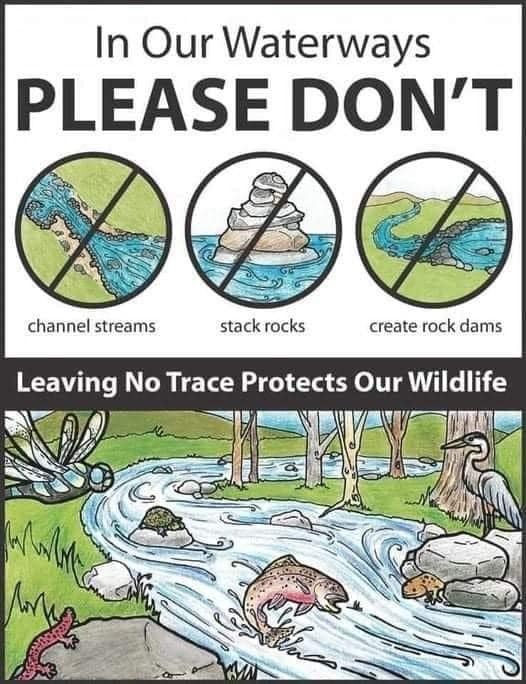
These practices are very disruptive and destructive for a wide variety of aquatic creatures.
via: National Park Service
13K notes
·
View notes
Text
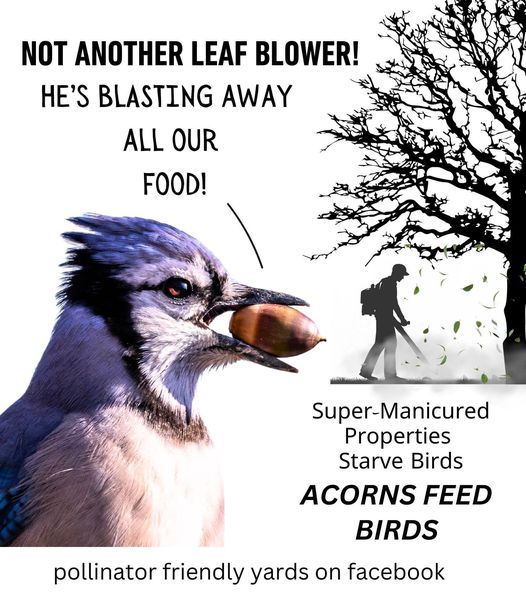
5K notes
·
View notes
Text
This is so cool! Finding animal life beneath hydrothermal vents is incredible! Some of the things they found in the underwater cave systems in earth's volcanic crust include snails and tube worms. These tube worms alongside chemosynthetic bacteria, use the hydrogen sulphide in the chemical plumes from thermal vents by oxidising it to create energy and sugars to survive. How cool is that?!
I think this article also really demonstrates how important it is to conserve and protect lesser known ecosystems and species.
#protect the weird and wonderful#protect the ocean#ocean conservation#marine benthos#marine ecosystems#marine biology#aquatic ecology#aquatic creatures#ecology and conservation#marine ecology#deep sea#deep sea mining#deep sea creatures#deep sea conservation#Ocean thermal vents#tube worms#chemosynthetic bacteria#chemosynthesis
6 notes
·
View notes
Text
I really, desperately want this to be our future. A lot of my work revolves around climate change. I have to look at current trends, and I have to consider worst-case-scenarios. And those are terrifying, and they need to be stopped at all costs.
But! I also look at what best case scenarios might be. And that gives me hope. If we can spread info about those true scary tend lines , but show those better case scenarios; maybe we can give people some hope and encouragement to make sustainable changes, and demand changes from governments, MPs, and big businesses.
I think we can make this future the reality we experience, I just think it will need a *lot* of effort, and a lot of working together as a community to put pressure on the big polluters.
In the future, children will think our ways are strange. "Why do old people always grow so much milkweed in their gardens?" they'll say. "Why do old people always write down when the first bees and butterflies show up? Why do old people hate lawn grass so much? Why do old people like to sit outside and watch bees?"
We will try to explain to them that when we were young, most people's yards were almost entirely short grass with barely any flowers at all, and it was so commonplace to spray poisons to kill insects and weeds that it was feared monarch butterflies and American bumblebees would soon go extinct. We will show them pictures of sidewalks, shops, and houses surrounded by empty grass without any flowers or vegetables and they will stare at them like we stared at pictures of grimy children working in coal mines
#hope#climate change#inspiration#environment#climate anxiety#environmental despair#sustainability#conservation#ecological activism#ecology and conservation#climate science#climate activism#environmentalism
95K notes
·
View notes
Text
Yo this rules and is genuinely uplifting
17K notes
·
View notes
Text
While on a shark dive, it is important to respect their space as they are wild animals. That said, these nurses were definitely seeking out interaction, and the divemaster had a safe, touch-free compromise at the ready!
#sharks#nurse shark#marine biology#marine bio#biology#zoology#animals#nature#ocean#cute animals#marine science#elasmobranchs#shark diving#scuba#scuba diving#marine conservation#ecology
2K notes
·
View notes
Text
From the article:
Above the whirring of 300,000 cars each day on Los Angeles’s 101 freeway, an ambitious project is taking shape. The Wallis Annenberg wildlife crossing is the largest wildlife bridge in the world at 210ft long and 174ft wide, and this week it’s had help taking shape: soil. “This is the soul of the project,” says Beth Pratt, the regional executive director, California, at the National Wildlife Federation, who has worked on making the crossing become a reality over the last 13 years. She says she’s seen many milestones, like the 26m pounds of concrete poured to create the structure, but this one is special. “To be able to put my hand in that soil and toss it on and know that we’ll be putting milkweed plants that will flourish for monarch butterflies, or picturing the first mountain lion paw print on that soil,” she says, fills her with hope. “It is wonderful to watch this habitat take shape.” The plot is a native wildlife habitat that connects two parts of the Santa Monica mountain range, with the hopes of saving creatures – from the famous local mountain lions, down to frogs and insects – from being crushed by cars on one of the nation’s busiest roadways. With nearly an acre of local plants on either side and thick vegetated sound walls 12ft high to dampen light and noise for nocturnal animals as they slip across, it’s an unprecedented feat of engineering. Imagination, too. The project began in 2022 through a public-private partnership that brought together many organizations to cover the $92m in costs, according to Caltrans, the state transportation department. Research shows that wildlife crossings save money because it limits animal interactions with vehicles.
#wildlife crossing#habitat conservation#habitat protection#wildlife#good news#hope#hopepunk#solarpunk#environment#biodiversity#endangered species#habitat fragmentation#road strike#habitat#optimism#ecology
1K notes
·
View notes
Text
This is so important, and I think more people should hear it. I'm also a PhD student, and my project involves looking at the impacts of climate change on marine ecology.
It's so infuriating seeing so many climate deniers talk about "conspiracies" and "woke propaganda" when they haven't done the first but if research or applied critical thinking to legitimately back up any of their claims.
Because, I've seen the reports, I've seen the studies, and I've seen scientists desperately try to reason with governments and businesses to reduce their carbon emissions, to reduce waste, and use clean energy. Because we know what's next if positive changes aren't made.
There's so so much historical climate data showing trend lines that are telling us that, where we're currently heading, is the path to irreversible global warming, biodiversity loss, and mass extinction.
Please listen to us when we say that climate change is real, it is happening right now, and we can fix it if we're quick.

#marine ecology#ecological modelling#phd research#ecology and conservation#climate change#climate science#climate activism#climate hope#climate anxiety#climate#global warming#listen to scientists
89K notes
·
View notes
Text
youtube
A sponge city is a new urban construction model for flood management, strengthening ecological infrastructure and drainage systems, proposed by Chinese researchers in early 2000 and accepted by the Chinese Communist Party (CCP) and the State Council as urbanism policy in 2014. It can alleviate urban flooding, water resources shortage, and the urban heat island effect and improve the ecological environment and biodiversity by absorbing and capturing rain water and utilizing it to reduce floods. (x)
Sponge cities are part of a worldwide movement that goes by various names: green infrastructure in Europe, low-impact development in the United States, water-sensitive urban design in Australia, natural infrastructure in Peru, nature-based solutions in Canada. In contrast to industrial management, in which people confine water with levees, channels, and asphalt and rush it off the land as quickly as possible, these newer approaches seek to restore water’s natural tendency to linger in places like wetlands and floodplains. — The architect making friends with flooding

#ecology#ecology and conservation#nature#architecture#urban planning#water#video#photography#links#reference#Youtube#my post
1 note
·
View note
Text
"England is celebrating the first pair of beaver kits born in the country since they were reintroduced back into the country’s north last year.
Landscape managers in England are beside themselves with surprise over the changes brought about by a single year of beaver residency at the Wallington Estate in Northumberland—with dams, mudflats, and ponds just appearing out of nowhere across the landscape.
Released into a 25-acre habitat on the estate last year, the four beavers at Wallington are part of a series of beaver returns that took place across the UK starting in 2021 in Dorset. Last year, GNN reported that Hasel and Chompy were released into the 925-acre Ewhurst Estate in Hampshire in January 2023, and the beavers that have now reproduced established their home in Wallington in July.
“Beavers are changing the landscape all the time, you don’t really know what is coming next and that probably freaks some people out,” said Paul Hewitt, the countryside manager for the trust at Wallington. “They are basically river anarchists.”
“This time last year I don’t think I fully knew what beavers did. Now I understand a lot more and it is a massive lightbulb moment. It is such a magical animal in terms of what it does.”
It’s believed that the only animal which alters the natural environment to the same extent as humans is the beaver. Their constant felling of trees to construct dams causes creeks to build up into pools that spill out during rainfall across the land, cutting numerous other small channels into the soil that distribute water in multiple directions.
Hewitt says that in Wallington this has translated to a frantic return of glorious wildlife like kingfishers, herons, and bats.
Recently the mature pair of beavers mated and produced a kit, though its sex is not yet known because beavers don’t have external genitalia.
These beaver reintroductions have led to a raft of beaver sightings around the country. Those at the National Trust working to rewild the beaver back into Great Britain hope the recovery of the landscape will convince authorities to permit further reintroductions to bigger areas."
-via Good News Network, July 16, 2024
#beaver#beavers#wild animals#rewilding#ecosystem#ecology#ecosystem restoration#conservation#climate action#biodiversity#good news#hope
4K notes
·
View notes
Text
Due to the USDA's CRP (Conservation Reserve Program), over 26 million acres of private farmland is rented by the US government. Instead of crops, they plant native plants. Benefits include conserving plant species, control soil erosion, improve water quality & enhance wildlife habitat.
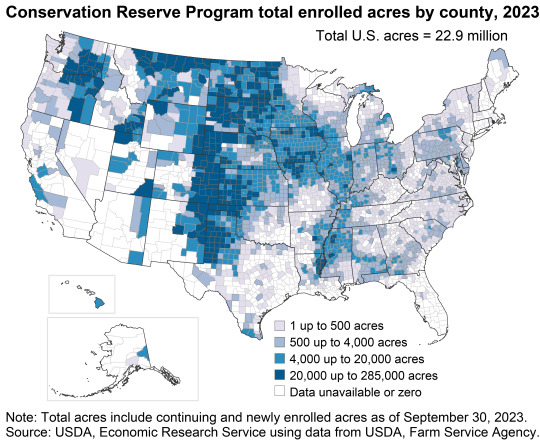
The government (through the USDA Farm Agency) pays rent annually. Given the current administration's predilection for reneging on contracts, I'm concerned what's going to happen to these acres.
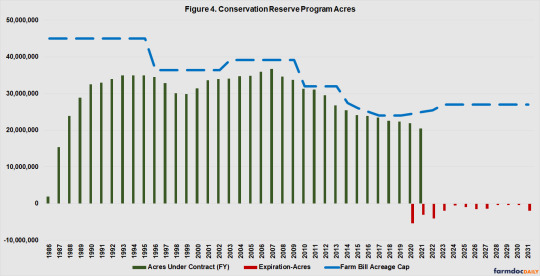
Don't get me wrong, I LOVE to quibble over CRP seed mixes; they're a concrete yet philosophical question of what makes a prairie a prairie, exactly. However, losing this much land is going to have a huge impact on plants, pollinators, & wildlife, especially grassland birds!
1K notes
·
View notes
Text
Now, I want to preface this with the fact that I love snakes, I love herpetology, and I love ecology, phylogeny, and conservation. I can't state how excited I am for this discovery, it's incredible, especially for a *large* snake species to get this kind of attention! Truly wonderful!
BUT! I can't get over the scientist in the button up shirt and shorts snorkeling next to a newly discovered giant snake! What a mood. I want nothing more than to live my life like that guy. 10/10 look, 10/10 situation. Would 1000% replicate.
hi do y'all mind if i misuse this blog entirely for a second. idk why i'm asking i don't actually care they found a new snake it's a New Snake we didn't know about this snake before!!!!
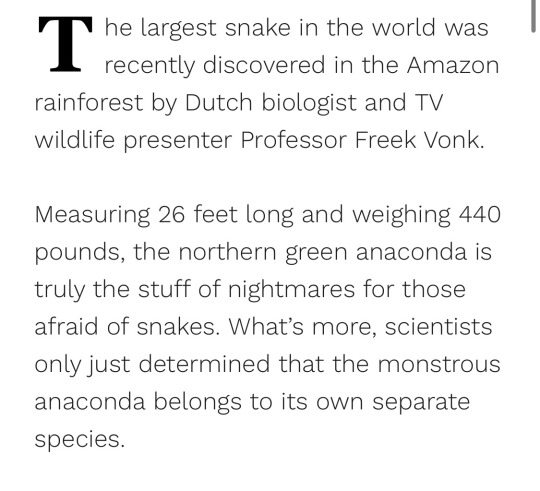
#wake up babe- new snake just dropped#best scientist outfit#not all scientists wear lab coats#some wear shirts and scuba equipment#wildlife science#ecology and conservation#phylogeny#evolution#new species#new snake#anaconda#boa#giant snake#herpetology
91K notes
·
View notes